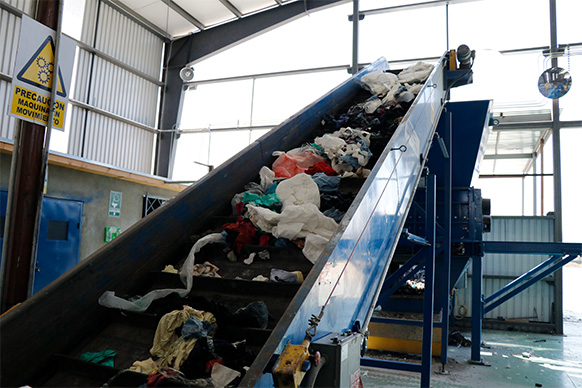
With Energy Recycling We Preserve the Natural Resources of the Planet
We formulate alternative fuel by recycling hazardous and non-hazardous solid waste using the best available technology for this type of waste, generated as part of industrial processes. Among other advantages, we reduce the carbon footprint, we contribute to the conservation of natural resources, and we reduce the amount of solids sent to landfill.
Waste materials that can be converted into alternative fuel have the virtue of having a high energy value such as solids, rags, filters, wood, plastic, cardboard, contaminated with paints, solvents, resins, oils or grease.
Alternative fuel has different phases in its preparation. First, the waste is inspected and separated to ensure that it is metal-free. In our plant, they are processed through a conveyor belt where they are subjected to a vibration process that separates powders and small particles. These powders and particles are recaptured by filters and special containers.
Finally, this waste passes through a shredder that generates pieces of uniform material in size (less than 2 inches) that are mixed homogeneously to ensure that it has the calorific value required to be used in high temperature industrial furnaces.
Alternative fuel can:
- Reduce the consumption of fossil fuels.
- Reduces combustion and the emission of pollutants.
- Reduces the emission of greenhouse gases.
Types of Alternative Fuel
Mixture of solids contaminated with oils, solvents, resins, paint, adhesives, acids, alkaline, hydrocarbons, toner, etc. (rags, globes, EPP, plastic containers, cardboard, paint dusts, filters, plastics)

